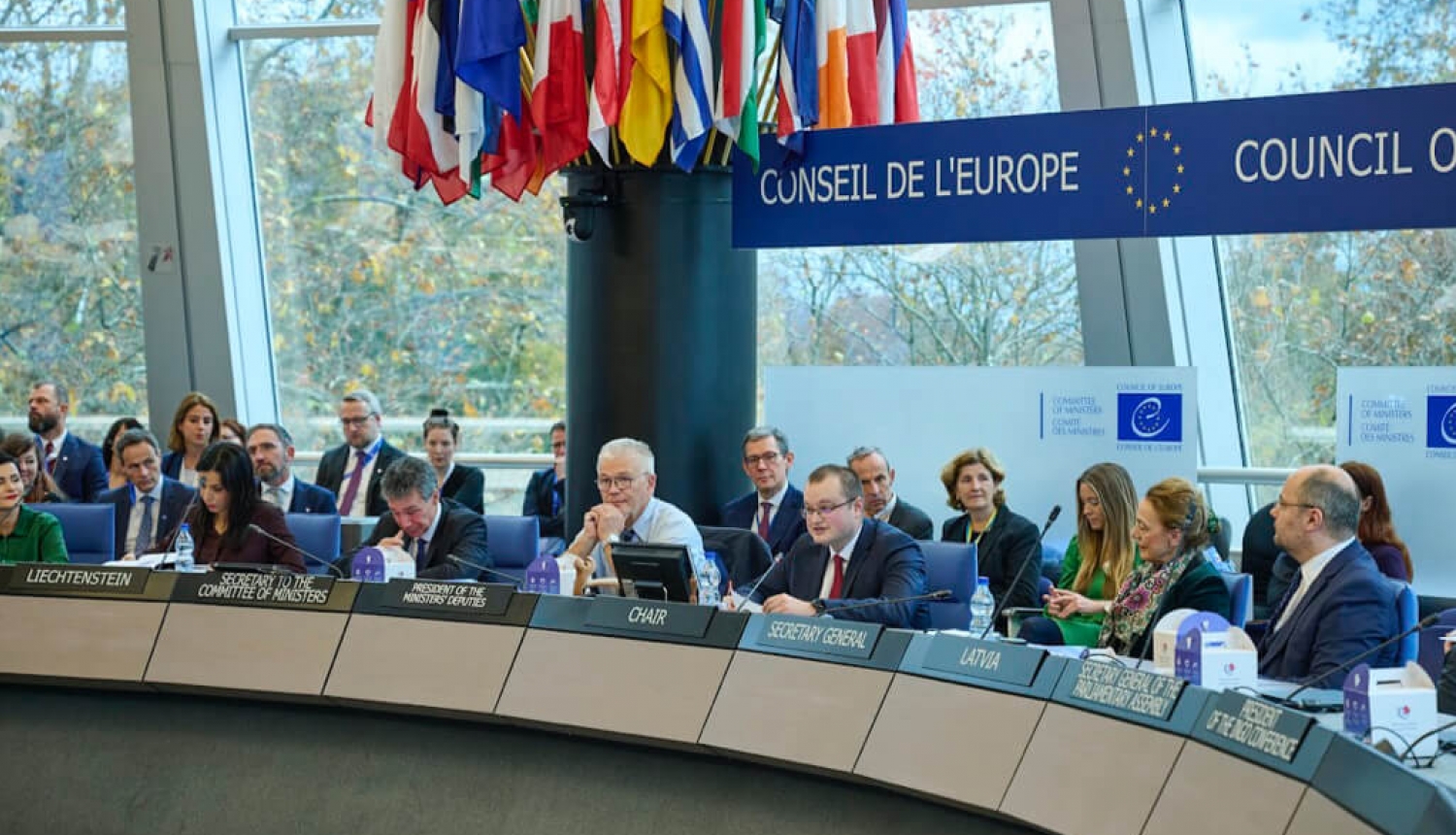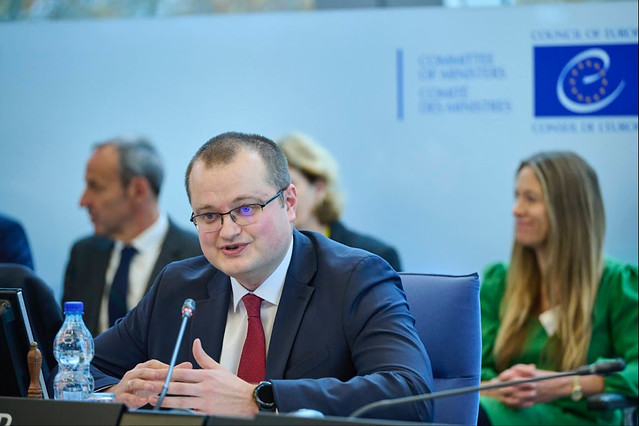On 15 November 2023, in Strasbourg, at the conclusion of the Latvian Presidency of the Committee of Ministers of the Council of Europe the Parliamentary Secretary of the Ministry of Foreign Affairs Reinis Brusbārdis addressed the representatives of the Committee of Ministers of the Council of Europe on the achievements, main accomplishments and challenges of the Latvian Presidency of the Council of Europe.
The Parliamentary Secretary pointed out that the work of the Latvian Presidency of the Committee of Ministers of the Council of Europe took place in a difficult period – during the time of the Russian aggression in Ukraine. Latvia’s main task was to provide all possible support to Ukraine, including within the Council of Europe. The Latvian Presidency paid particular attention to the issue of Russia’s accountability, particularly the establishment of a Register of Damage for Ukraine to document the losses and damage caused by Russia’s aggression in Ukraine. Reinis Brusbārdis emphasised that the launch of the Register of Damage of the Council of Europe was one of the major achievements of the Latvian Presidency. It is an important step towards the establishment of an international compensation mechanism.
A major challenge for Latvia, after taking over the Presidency from Iceland at the Reykjavik Summit on 16 and 17 May, was to start implementing the Summit’s decisions – strengthening the role and influence of the Council of Europe, addressing the current challenges in the field of human rights, and providing support to Ukraine by the organization, including holding Russia accountable internationally for its crimes in Ukraine.
The national thematic priorities of the Latvian Presidency were the strengthening of democracy and the rule of law, the freedom of expression and journalist safety, the promotion of Council of Europe digital agenda, as well as the advancing of the Council of Europe reforms. These priorities were implemented during Presidency events such as international conferences, high level-events, ministerial meetings and informal discussions.
Reinis Brusbārdis briefed the Committee of Ministers on the progress made by the Presidency in the strengthening of democracy and the rule of law, with a particular emphasis on the support for the strengthening of the resilience of the Ukrainian judiciary and the implementation of the judgments of the European Court of Human Rights.
Professional challenges in the field of the freedom of expression and safety of journalists were discussed at an international conference on the freedom of expression and safety of journalists in Riga on 5 and 6 October. The Latvian Presidency actively worked towards the reforms of the Council of Europe, promoting openness, visibility and modernisation of the organisation’s work. In talks with senior officials of the Council of Europe, the Latvian Presidency strongly emphasised that the employment of Russian citizens at the Council of Europe was unacceptable.
The Parliamentary Secretary of the Ministry of Foreign Affairs handed over the Presidency of the Committee of Ministers of the Council of Europe to Liechtenstein and confirmed Latvia’s continued support for the work of its Presidency. The change of the Presidency was enriched by a joint musical performance by artists from Liechtenstein and Latvia.
In addition to thematic events, a wide-ranging cultural programme was organised during the Latvian Presidency. There were concerts by Latvian musicians, Latvian artist exhibitions and film screenings in Strasbourg.





